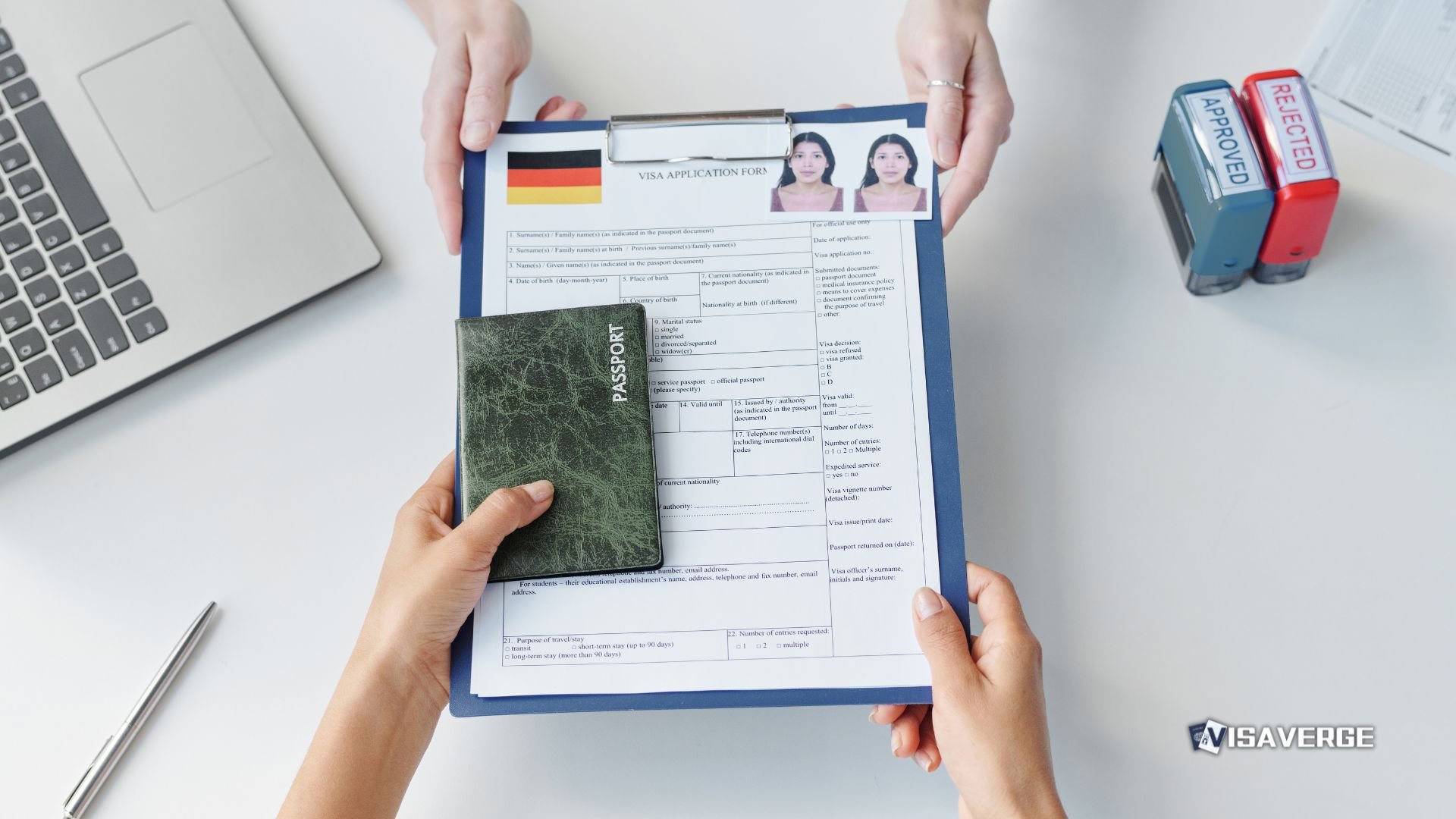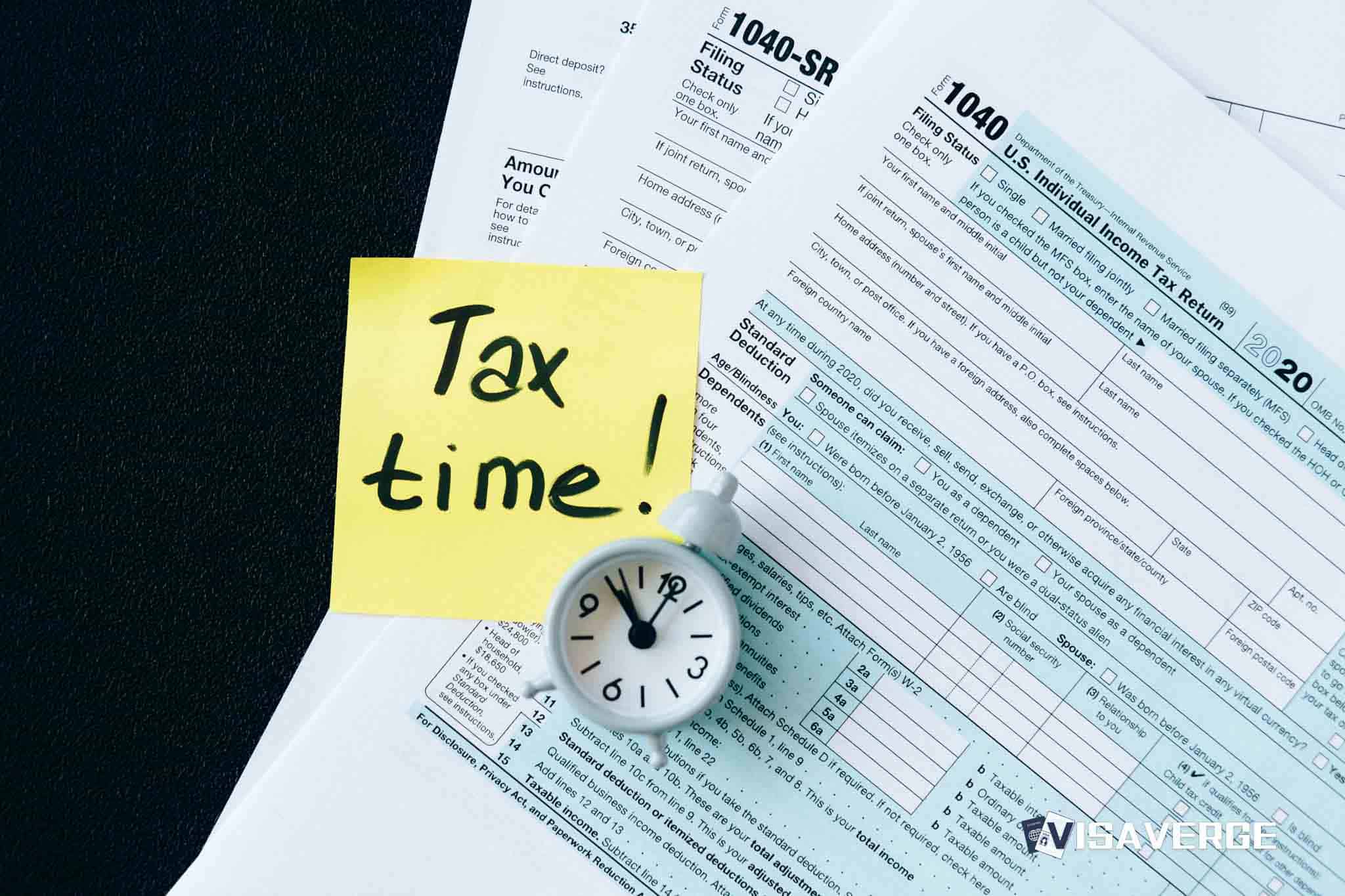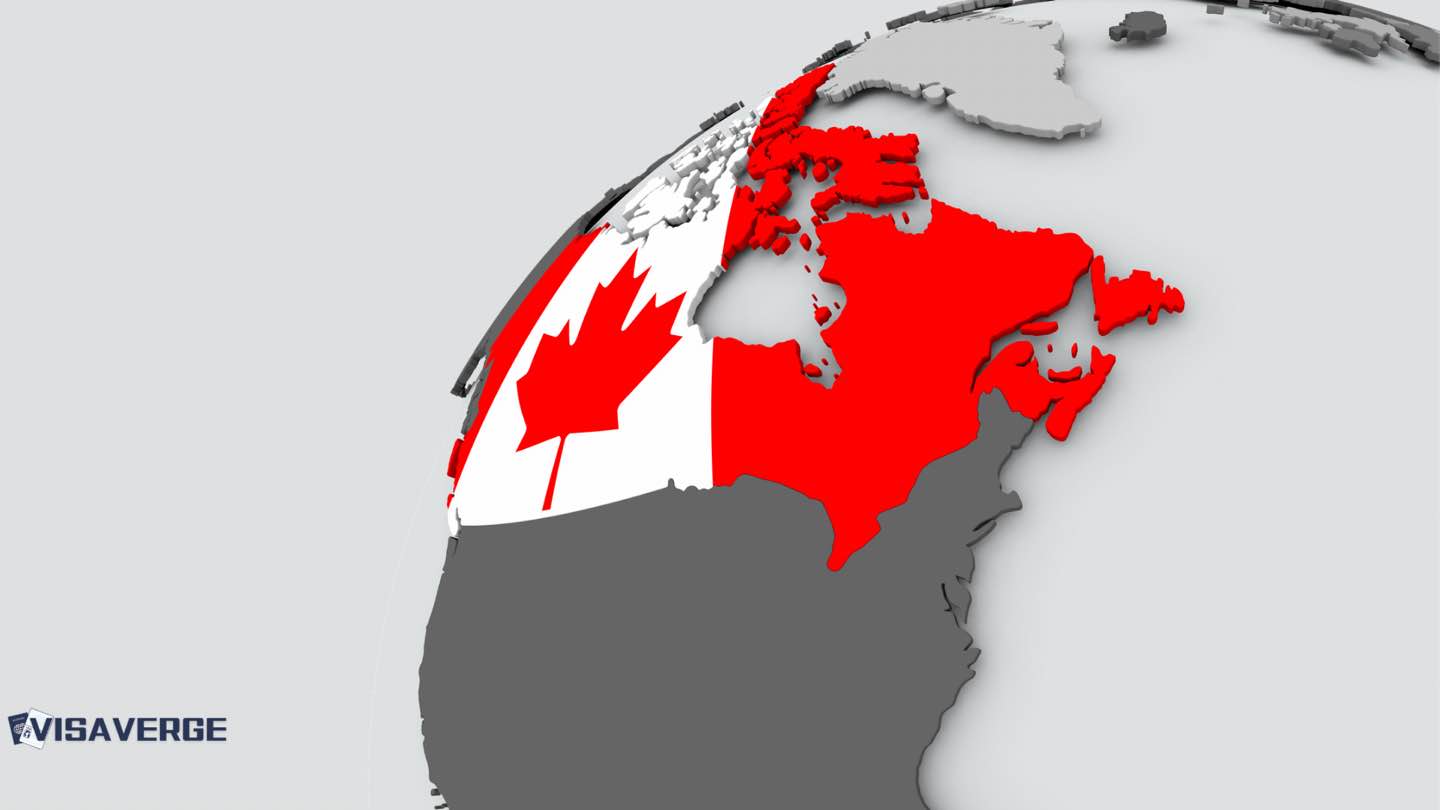Key Takeaways
• Germany ends administrative visa appeals on July 1, 2025.
• Applicants must use courts or submit new applications after a rejection.
• Judicial appeals cost €1,000–€3,000 and may take up to two years.
Germany 🇩🇪 will make a very important change to its visa process on July 1, 2025. On this date, the country will end the administrative appeals process for visa rejections. This means that when someone applies for a German visa and receives a rejection, they will not be able to challenge that decision using the old method known as “administrative remonstration.” Instead, applicants who want to fight a visa refusal will only have two choices: bring a case to a German court or submit a brand new application. This change will affect thousands of people every year, including tourists, students, workers, and families hoping to visit or move to Germany 🇩🇪.
To understand how big this change is, it can help to look at what happens now and how things will be different soon.

Germany’s Current System for Challenging Visa Rejections
Until June 30, 2025, Germany 🇩🇪 allows people who get their visa application rejected to use what is called the “remonstration procedure.” This is an easy way to ask for a new look at the rejection. The process works like this: the visa applicant writes to the German embassy or consulate, explains why the visa should be approved, and shares any extra documents that might help. This request is reviewed by the same embassy or consulate that gave the original answer. The big benefits of administrative appeals are that they are free, do not need a lawyer, and give people a good chance to fix mistakes or add missing paperwork. Most of these reviews are decided in about three months.
Because remonstrations are handled by the embassy or consulate, they do not require a detailed understanding of German law or language. People can usually write their arguments in clear, simple words, even if they are not experts. If the embassy or consulate agrees, they change the answer and give the applicant a visa. If they still say no, there used to be more steps available, including a court appeal.
What Will Change After July 1, 2025
Starting July 1, 2025, the remonstration process will be removed. Anyone who has their visa rejected will have only two main options. The first is to go to court in Germany 🇩🇪 and make a “judicial appeal.” This is a formal legal process, and it is much harder and more expensive than an administrative appeal. People will probably need to pay for a lawyer, court costs, and translation of documents. The second option is simply to apply again from the beginning and hope for a better result.
A table can show these changes clearly:
| Until June 30, 2025 | From July 1, 2025 |
|---|---|
| Administrative appeal: free, easy, decided in ~3 months | Only judicial appeal: costs €1,000–€3,000, decided in up to 2 years |
| No lawyer required | Usually need a lawyer |
| Can add new documents easily | Formal, harder process |
| Can fix mistakes | Mistakes harder to fix |
Why Germany 🇩🇪 is Making This Change
Germany’s government says the decision comes after a test program at some of their consulates and embassies. By dropping the remonstration step, staff at embassies had more time to review new visa applications. The process for both Schengen visas (which let someone travel in most of Europe for a short time) and national visas (for working, studying, or living in Germany 🇩🇪) became quicker. Authorities believe that cutting this step will free up more time and let consulates approve or reject applications faster.
In simple terms, Germany 🇩🇪 wants to focus its resources on handling new visa applications faster, not on reviewing old ones. The idea is to help all applicants by making the first answer come more quickly. However, this also means that people who receive a rejection have fewer chances to challenge the decision or fix mistakes.
How This Will Affect Different Groups
This upcoming change will impact a lot of people, but especially those who are applying for the first time, students, or anyone who is not an expert in legal matters.
- Students and Scholars: Many students want to study in Germany 🇩🇪 because of the high-quality universities. If a student’s application is rejected under the new system, they will need to hire a lawyer and go to court if they want to challenge the decision, which could cost between €1,000 and €3,000 and take up to two years. This will make it much harder and more expensive for students to fight a wrong decision. Some may give up and look at other countries instead.
- Tourists and Business Visitors: People coming for a short visit might not think it is worth the high cost and long wait for a court case. The process of appealing will become much less attractive and not really possible for many. As a result, most people may simply accept a rejection or reapply.
-
Job Seekers and Family Reunification Applicants: Those hoping to work in Germany 🇩🇪 or bring family members might feel the biggest impact. The stakes are often higher, and these applicants might be more likely to try a court appeal, despite the higher costs and possible need for a lawyer. Still, for many families, this change could feel unfair or intimidating.
-
Low-Income or Legally Unfamiliar Applicants: People with less money or less experience with German law will face the biggest hurdles. They may not be able to afford a lawyer or to wait years for a court case. For them, visa rejections may close the door on visiting or joining someone in Germany 🇩🇪.
A quote from an official sums up this worry: “Travellers must now focus on first-time accuracy as the consequences of a visa rejection will be more serious than ever.” In other words, it will be more important than ever to get the first application right, because fixing mistakes later gets tougher and more costly.
How Germany’s New System Compares with Other Countries
This move brings Germany 🇩🇪 more in line with other countries such as the United States 🇺🇸, Canada 🇨🇦, Japan 🇯🇵, and China 🇨🇳, where administrative appeals for visa rejections do not exist or are very limited. In those countries, once a visa is denied, a person usually cannot appeal within the embassy or consulate. Judicial appeals are possible, but they are difficult, expensive, and rarely successful. Germany 🇩🇪 was one of the only countries in Europe to have such a simple, easy internal review process. By ending the administrative appeal, Germany 🇩🇪 is following an international trend.
Judicial Appeals: A Much Harder Path
One of the largest changes is that a rejected applicant who wants to fight the decision must now go through the German courts. This process is much more difficult than writing a letter to an embassy. Here are the challenges with court appeals:
- Expensive: Legal fees and court costs might be anywhere from €1,000 to €3,000. If documents must be translated, that adds to the cost.
- Takes a Long Time: Unlike the old appeal process, which often took only about three months, a court case can last up to two years.
- Complex: German court procedures are formal. Applicants often need a German lawyer and must follow strict rules. Most people will not know these rules or how German law works.
- Low Success Rate: In many cases, courts tend to trust the embassy’s original decision, unless there is a clear mistake. So the chances of winning in court are not high.
- Difficult to Submit New Evidence: In court, rules about new evidence are much stricter. If someone forgot to include a document in the original application, it may be too late to add it.
Because the judicial path is so much more demanding, most applicants may decide to simply submit a new visa application and start again. However, reapplying does not guarantee success, especially if the reason for rejection is not clearly understood or fixed.
Implications for Embassies and Germany’s Administrative Workload
According to German authorities, the main goal is to help embassies and consulates focus on new applications. By ending administrative appeals, staff can spend more time processing new applications quickly. This change is expected to reduce waiting times for all applicants. The German Federal Foreign Office hopes this will make the visa process smoother and more predictable. Analysis from VisaVerge.com suggests that, while this may reduce the time embassies spend on back-and-forth appeals, it could have an impact on people who rely on the chance to correct simple mistakes or misunderstandings in their application.
Timeline and Implementation
The change was tested in a pilot at select German missions, where embassies allowed only judicial appeals to see the effect on workload and pick up lessons. Following this, Germany 🇩🇪 has set July 1, 2025, as the date when the new policy will start everywhere. Between now and that date, applicants can still use the old administrative appeal process. Starting July next year, only judicial appeals and fresh applications will be possible.
Questions Applicants May Have
- What can I do if my visa is rejected after July 1, 2025?
You can go to a German administrative court to fight the decision, but this is expensive and takes a long time. The other option is to apply again as a new applicant. -
Will I need a lawyer for a court appeal?
Yes, you will probably need a lawyer, and the whole process is much more formal. -
Can I submit new documents at the court stage?
It is much harder. Courts have strict rules on what can be added after a rejection. -
Is a judicial appeal likely to succeed?
Success is rare unless there is clear proof of a mistake. -
Can I still write to the embassy/consulate and ask for help?
Only until June 30, 2025. After that, the old administrative appeals process will be gone.
Possible Controversies and Criticism
Some groups say that removing administrative appeals makes the system less fair, especially for people who cannot afford lawyers. Critics worry that families and students will suffer most. Supporters argue that this move makes Germany 🇩🇪 faster and more like other leading countries. There is debate about whether the benefits for embassy staff and processing times are worth the extra burden on applicants.
Legal and Practical Steps for Applicants
If you plan to apply for a German visa, it is now more important than ever to check your application carefully before submitting. Double check all personal details, supporting documents, and the requirements for your visa type. If unsure, ask a trusted advisor or legal specialist before applying.
Those who receive a rejection before July 1, 2025, should make use of the administrative appeal process while it is available. After that date, be prepared for a much tougher and longer road if a rejection happens.
For more details or to see official Germany 🇩🇪 visa guidelines, you can visit the German Federal Foreign Office’s official visa page.
Conclusion and Next Steps
Germany’s decision to end administrative appeals after visa rejections means that the process will be much more strict and harder for everyone. The costs will rise, decisions will take longer to challenge, and applicants will have to be much more careful the first time they apply. If you are thinking about going to Germany 🇩🇪, take care at each step. Stay updated by following official government websites and seek legal guidance if needed.
Visa applicants should remember that this article gives a general guide and is not legal advice for any specific person or case. Always check the latest rules for Germany 🇩🇪 and seek help from a professional if you have questions about your situation.
Learn Today
Administrative Remonstration → A free administrative appeal process allowing rejected visa applicants to request reconsideration from the embassy or consulate.
Judicial Appeal → A formal, court-based legal challenge against a visa rejection. Requires lawyers and incurs significant costs and time.
Schengen Visa → A short-stay visa allowing travel across most European countries within the Schengen Area for up to 90 days.
German Federal Foreign Office → Germany’s official government body responsible for foreign affairs, including visa rules and international diplomatic missions.
Consulate → An office representing a country abroad, often handling visa applications, citizen services, and diplomatic matters in foreign cities.
This Article in a Nutshell
Starting July 1, 2025, Germany will eliminate its free administrative appeal process for visa rejections. Applicants must either pursue costly, complex judicial appeals or submit entirely new applications. This change impacts all visa categories, making initial application accuracy essential and raising both the financial and procedural barriers for tourists, students, and families.
— By VisaVerge.com
Read more:
• Indian Student and H-1B Visa Holders Struggle to Reenter United States
• Work Visa driver involved in fatal Alabama crash faces lawsuit
• Key Differences Between june 2025 vs May 2025 Visa Bulletins: Changes Explained
• Understanding the June 2025 Visa Bulletin: A Guide to U.S. Immigration Policies
• Uzbekistan tops 2025 U.S. Diversity Visa Lottery winner list













